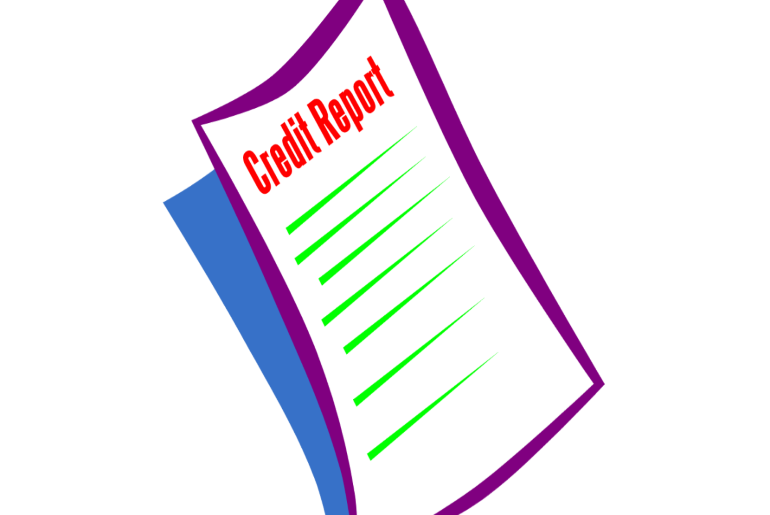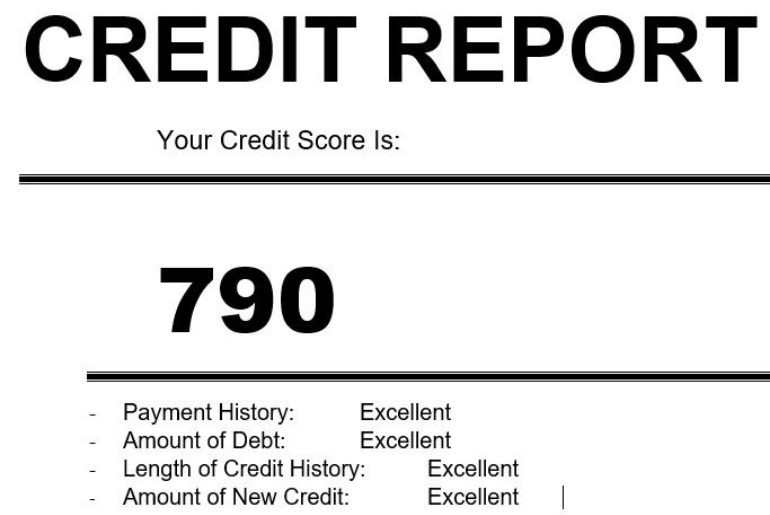5 Things You Should Know About Credit Rating
There are some things that affect your credit score and some that do not. Knowing which is which will help you know what to take care of and what not to worry about.
Below are some of these.
1) There are no Credit Black Lists
Credit agencies make you believe that there are blacklisted or banned people. One of the things I learned is that, in the UK, there is no uniform credit score and there are no banned or blacklisted people. Each of the credit providers (lenders) scores people secretly and differently based on their own requirements. What does that mean? It means that if one lender rejected you, it does not mean that another lender will reject you but one thing is clear and very important. After one lender’s rejection, you should check your credit file, understand why you were rejected, correct any errors, if any, and make another application.
One important thing to note however is that, if you have messed up your credit rating, that is you have had a history of poor credit, you can feel as if you have been banned from receiving any credit because you would have one rejection after the other because, let’s be fair, no body wants to lend to somebody who has a history of not repaying their debt

2) Will You also make money for the lender?
When lenders reject you for credit, it is not always about poor credit. You can have a 999 credit score and get rejected for credit. I have experienced that before.
What is the main reason why a lender lends money? You got that right, to make a profit from you, the customer through the interest/charges on the credit they have offered you. If you are so perfect at paying off your debt, and the lender doesn’t benefit anything from lending you money, then you are an unprofitable customer to them. SO you see, it’s not always about the risk of non-payment. You can be rejected credit even when you are a triple AAA customer.
3) Your Credit report is used to determine what type of product and the rate for you
This is something called – ‘rate for risk’. What does this mean? It means that the creditors in the market not only use your credit score to establish whether they will give you credit or not but also to decide what interest rate that you will also get. This is best shown on what they call a representative loan rate (Representative APR). This means that, for example, they advertised the loan at an interest rate of 4%, after your credit check, they may say your interest rate on the same loan will be 35%. That is the impact a poor credit score can have on you as an individual. You may still get credit from lenders but at a rate of interest not favourable at all.
 4) What do Lenders really know about you?
4) What do Lenders really know about you?
Knowing what lenders really know about you when you apply for credit is very important. If you know this information, then you can present yourself to them in the best way you can. It is not often only what is in your credit file that is taken into account
Information collected from you
This is what you tell the lender yourself on the application form. You are asked about the size of your family, how much you earn, your address, the reason for the loan and whether you are a home owner. Ensure that you complete the application form correctly. Make sure that you are consistent with the information you put down on your application form. Simply things like changing your phone number can impact negatively on your credit.
History from other providers like your energy providers
Most credit providers now share credit report data and suppliers like energy suppliers do share a lot of information between them especially when you switch suppliers.
Also, if you have ever committed any fraud or been a victim of identity theft, then it will also be part of your file and that information will be available to credit agencies.
Information from past dealings
Finally, if you have had past dealings with that lender, then it goes without say, that they will have information about you and they will use this information as part of the credit scoring process. This can be an advantage for you because, if you have had past good dealings with a particular lender, they would use that information and you will be more likely to get credit from them than elsewhere. Your bank is the most likely in this situation. But if you had a poor relationship with the lender you had previous dealings with, they are unlikely to lend to you again.
The Major Credit Agencies in UK (Experian, Equifax)
These are the major UK credit reference agencies and are used by most lenders to get information on individuals. All lenders use at least one of these agencies to get credit data. The data the agencies use comes from 4 main sources
o Address, linked data and search
Because lenders use these agencies, they hold a lot of information on the individual already as a result of searches made by other lenders or any financial associations you have.
o The Electoral register
You may not have known this, but the electoral register is one of the main sources of information. It contains publicly available information of the address and other information about residents.
o Account Data
Information from banks, utility companies, etc
o Court records
Court judgements, bankruptcies etc.
It is also important to know what lenders do not know about you so that you don’t have to worry about them.
o Council Tax Arreas
You may be surprised about this, but councils don’t share data about your payments irrespective. But your non-payment can affect you seriously and can seriously hurt your credit score as the council are very quick to send you to court, in which case, you end up with a criminal record which would not only impact your credit but other areas of your life.
o Student loans
No information about your student loan appears in your credit record unless you have missed payments and have also had a court judgement against you.
o Parking fines as well as driving fines
o Your race, ethnicity and your religion
o Your salary
You will be asked on the application form but it’s not part of your credit information held.
o Your medical history
o Savings account information
As savings is not a credit product.
o Child support payments
5) Credit Scoring is all about using past behaviour to predict future behaviour
This is one of the points that most people don’t understand about credit scoring. It may surprise you but it will keep you in the know.
Credit scoring is really all an effort to predict your future behaviour. That means, there has to be some sort of historic information that can be used for the process.
If you have no credit history to be looked at, then predicting what may happen in the future from data held on you will be very hard as this future behaviour is based on what has been done in the past.
That is why many people are often surprised that they have never borrowed money or owned a credit card before, yet they are rejected credit on a bad credit score. That is because, there is no history of credit.
Note: A bad Credit history will work against you, having no credit at all will also work against you as there will be nothing to use to make the predictions. Therefore, work on building a good credit history rather than having no credit history at all.
Staying away from credit is not the most efficient way of managing your finances as that means you have no credit history. Meeting everyday needs that require good credit may become difficult of achieve. Managing your finances appropriately is the first step.
If you haven’t already done so, grab our financial success pack and start taking control of your finances today.




